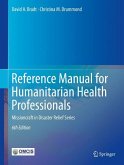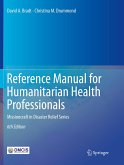This unique text fills a major gap in the emergency services literature by surveying the research on fire and rescue service management in the UK. An extensive evidence base focuses on organizational culture, leadership skills, standards, and accountability, emphasizing the services' dual roles as first responders and guardians of public safety and prevention. The implications for international public health and safety programs are made clear as the services' recent history illustrates the complex challenges typical of functioning within local and national political contexts. Chapters take on a broad range of management, leadership, service delivery, and staffing concerns, including:
· Evolution and adaptation of fire and rescue services during periods of expansion and austerity.
· Civil protection as a local and national priority.
· Structural issues: assessments and improvements, collaborations with other services.
· Emerging social concerns:diversity, gender equality, the aging worker population.
· The concepts and consequences of heroes and heroism.
· Future directions for governance, transparency, and accountability.
Fire and Rescue Services complements the earlier volumes in the Leadership & Management of Emergency Services series with equal parts realism and vision. It should interest a wide audience of public policymakers, public managers, and emergency service personnel, as well as academics and researchers.
· Evolution and adaptation of fire and rescue services during periods of expansion and austerity.
· Civil protection as a local and national priority.
· Structural issues: assessments and improvements, collaborations with other services.
· Emerging social concerns:diversity, gender equality, the aging worker population.
· The concepts and consequences of heroes and heroism.
· Future directions for governance, transparency, and accountability.
Fire and Rescue Services complements the earlier volumes in the Leadership & Management of Emergency Services series with equal parts realism and vision. It should interest a wide audience of public policymakers, public managers, and emergency service personnel, as well as academics and researchers.








